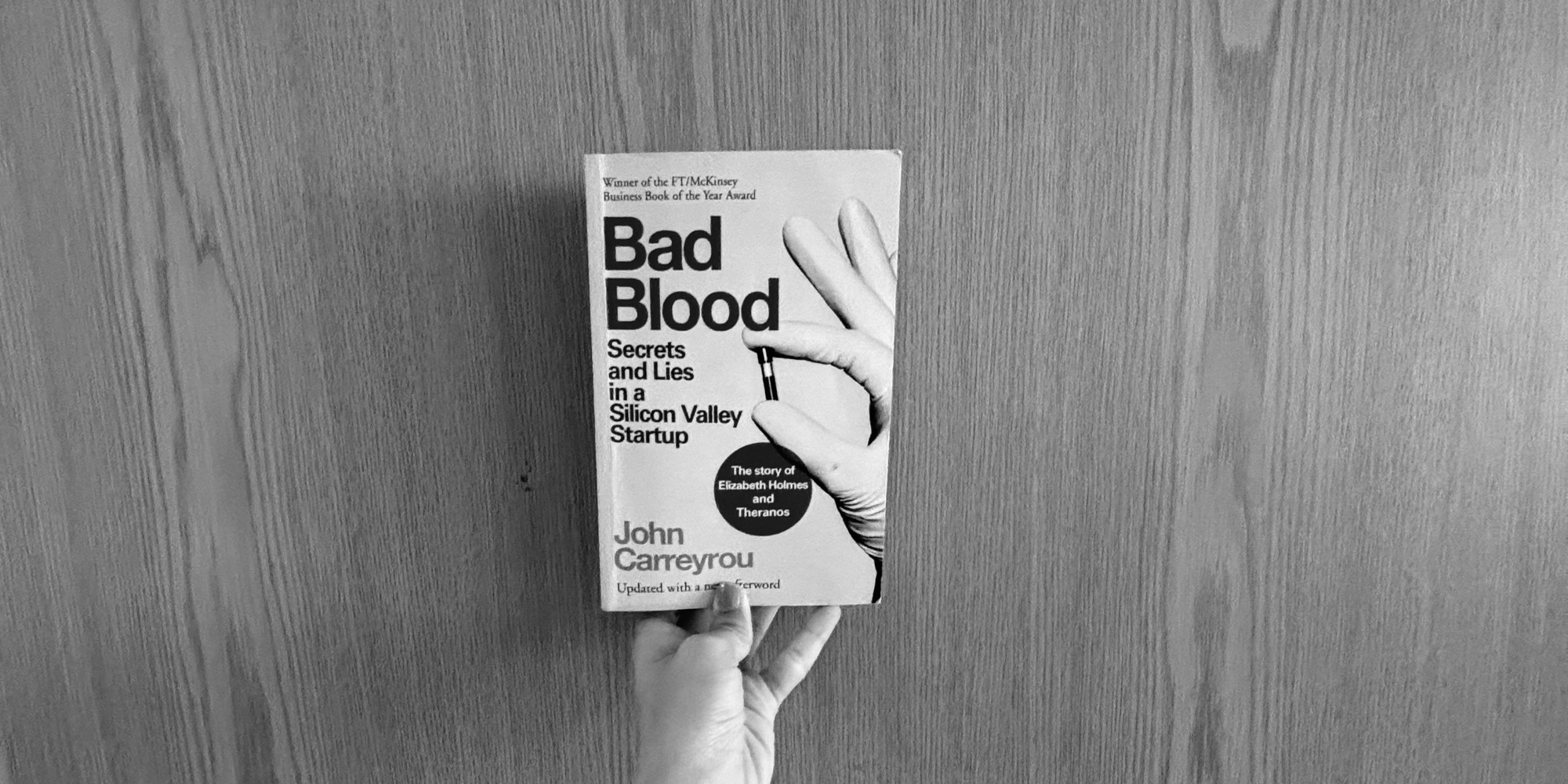Book Review: Bad Blood

What is it about?
At its core, Bad Blood by John Carreyrou’s is the story of a young, ambitious entrepreneur - Elizabeth Holmes, who set out to change the world. She dropped out of college to build a startup in Silicon Valley. Her vision was to revolutionize blood testing by running hundreds of tests using just a drop or two of blood. In the beginning, her intentions may have been genuine but somewhere along the way, ambition clouded judgment. Theranos (her startup) became one of the most celebrated unicorns in tech valued in billions, backed by powerful investors and fueled by Elizabeth's relentless drive. But beneath the glossy surface, there was no real product—just a dream held together by secrecy, pressure, and lies. Elizabeth was undeniably passionate and talented, but she used both in the wrong direction. In the race to be at the top, she lost sight of ethics, ignored practicality, and crossed lines that should never have been crossed.
Why it appealed to me?
By this point, I had read one too many self-help books and was craving something different. I decided to give true crime a shot, and this book instantly caught my attention. I vaguely remembered hearing about this story at a small dinner party—someone had mentioned a series based on it, and I was completely intrigued. So when I stumbled upon Bad Blood, it immediately clicked. I had to read it.
What shocked me the most was how someone could convince some of the most powerful names in business and government to invest in her vision—without ever having a working product—and build a unicorn startup in the heart of Silicon Valley. It felt almost unreal.
This book reminded me just how powerful narratives can be. People often buy into other people not the product, not the data. It’s the story that sells. And in this case, it sold billions. Elizabeth wasn’t just pitching a device, she was offering a bold, emotional promise to eliminate the pain of traditional blood tests and democratize healthcare. That kind of messaging is hard to ignore, especially when delivered with confidence, vision, and just enough mystery. But as I kept reading, I realised how dangerously thin the line can be between optimism and delusion, between vision and deception. It made me reflect on how often we glorify ambition without questioning the foundation it’s built on.
What struck me most was the real, human cost of this deception—patients receiving inaccurate test results, lives put at risk, and employees silenced for speaking the truth. Behind all the headlines and hype, this was a story that affected people’s health and trust. And it was only because of John Carreyrou’s relentless investigative journalism that the truth finally came out. Without it, stories like these would remain untold.
Should you read it?
If you're someone who enjoys stories that feel almost too wild to be true, you should definitely read this one. Bad Blood is gripping, fast-paced, and very well-written. It reads more like a thriller than a piece of investigative journalism, and yet everything in it actually happened. Whether you're curious about startups, fascinated by human psychology, or just looking for a break from the usual self-help books, this one is worth picking up. It’s not just a story about a company gone wrong, it’s a reflection on ambition, accountability, the power (and danger) of a well-told story.

